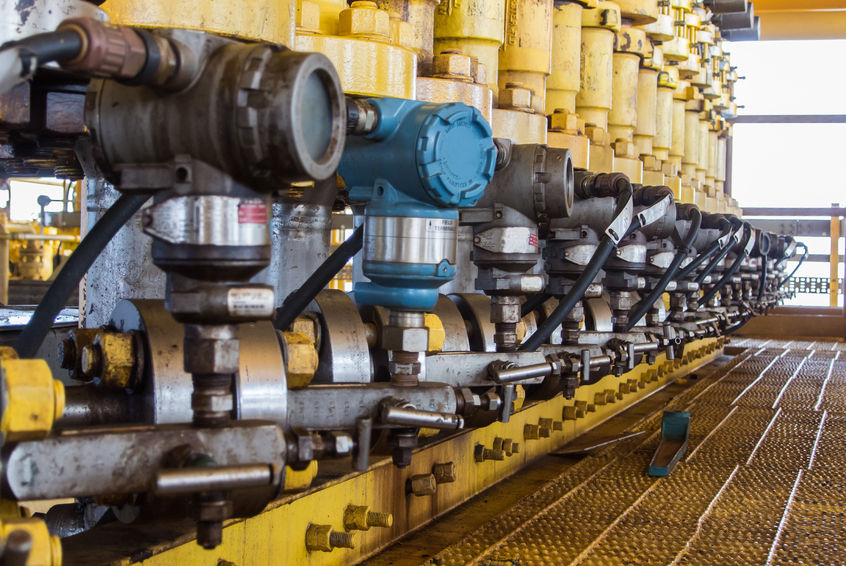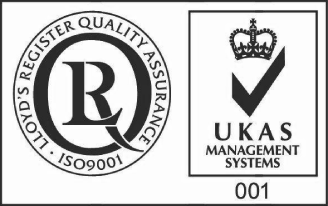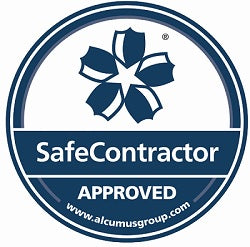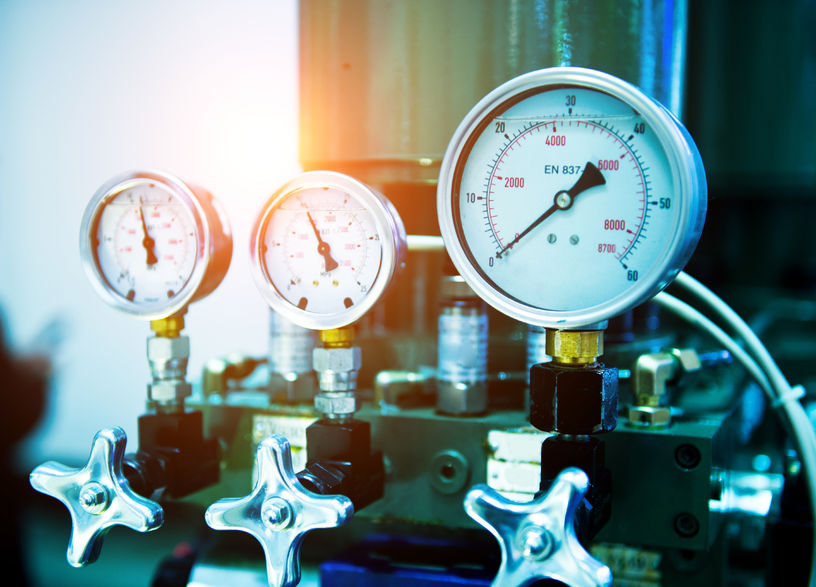pressure vessel testing - written scheme of examination
Under pressure? Hopefully, yes, you are - but within safe operating limits. Pressure vessel testing & written schemes of examination.
If you store air then you are likely aware of the need to test and have your system certified for insurance purposes. This isn't something which has to be done by your insurer, and it's often cheaper to have the inspection, testing and certification carried out by industry specialists, rather than whoever your insurance company has a contract with.
Remind me why I need it again? Pressure vessel testing is like a car requiring an MOT. A pressurised system needs to be tested to make sure it's safe for employees to operate. Most air compressor systems will be governed by the Pressure Systems Safety Regulations 2000, which covers equipment operating at over 0.5 bar (if your air receiver happens to a pressure volume greater than 250 bar litres a Written Scheme of Examination (WSE) is likely to be mandatory). Unlike an MOT however, the inspection intervals specified by the Health & Safety Executive under 'The Provision and use of Work Equipment Regulations' (PUWER) vary. So plant which operates under greater stress, comes into contact with the public and is used extensively, requires more regular testing. Escalators, for example, must be tested every 6 months, whereas a compressed air pressure plant only needs to be tested every 26 months. Essentially, you're testing to make sure any issue is detected and resolved before it can lead to an incident or accident. Your equipment has to be fit for purpose, safe to use and structurally sound. And your insurance company may insist on you having a WSE (the official name for your certificate) before they insure you (pressure vessel insurance). Are you sure I need it? Really? Take me to the WSE rules.
Are there any pressure systems excepted from the regulations? Surely, there must be some?
Yes. You are correct, there are. But if you're operating an industrial air compressor, or even a commercial coffee machine...then these are NOT exceptions. The rules surrounding exclusion are very specific and we're quoting the HSE 2000 regs here (see an example below). If you're reading this, we don't think your pressure vessel is part of a defence system. We could be wrong. But we don't think so.
These Regulations shall not apply to—
(1) A pressure system which forms part of the equipment of—
(a) a vessel used in navigation.
(b) a spacecraft, aircraft, hovercraft or hydrofoil.
(2) A pressure system which forms part of, or is intended to form part of, a
weapons system.
And tell me, what are the potential problems with pressure vessels? My equipment was only purchased within the last few years and we use it in line with the manufacturer's instructions.
All good, so you've invested in your plant and you're maintaining it. But, as you know, pressure vessels deserve respect. The consequences of a pressure vessel failing can be disastrous...with equipment damage being the least serious outcome.
Your pressure vessel inspection will be looking for details that might have gone unnoticed and, as such, be having a detrimental effect on your investment ie your shiny new air compressor. Issues such as:
- Manufacturing defects in the air compressor itself
- Incorrect installation
- Poor/inadequate maintenance
- Subpar repairs or modifications
- Operator error, poor training/supervision
- Accidental damage, eg through impact
So what does it involve? First off, we conduct a comprehensive 'Statutory Examination'. This entails a comprehensive examination of your air system. We'll advise on its condition, its safety and its effectiveness. This is essentially a 'full medical' for your system. We're looking to make sure your pipework is safe, that there's no rust, that your pressure is correct and take a note of any wear and tear.This includes opening vessels for a thorough internal examination and taking an ultrasonic scan of the vessel wall thickness. If we find any anomalies, we'll advise you of any action which needs to be taken.
Following the statutory examination, we'll have a detailed report - inclusive of drawings and air receiver sizes and markings. If your system is within safe operating limits then we'll arrange to have your Written Scheme of Examination issued (and this will detail how often future inspections must take place). But certificates can be fiddly things. They get lost, crumpled, mis-filed, so we'll securely encrypt and 'cloud' your information (your report & certificate) and give you access to it via a portal. From the portal you can access & print it 24/7, from any device.
And I should choose EDC because? Well, other providers are available (but they're not us). As well as having impeccable industry knowledge, the company you choose (because you are allowed to make the selection as long as they are a 'compentent person') should be independent and impartial - so avoiding a conflict of interest. This means you don't have to go with the option suggested by your insurance company.
Apart from being fully trained to carry out pressurised systems inspection & testing, we are air compressor engineers...and we know compressed air systems inside out. What we aren't is a company which only conducts inspections, so if something is wrong with your plant, we won't just be able to identify it. Chances are we'll have encountered it before, know what caused it - and know how to prevent it from happening again. Being able to fix it goes without saying. In-depth knowledge can go a long way...
When the pressure's on - look to EDC to 'gauge' how to handle it. Pressure Vessel Testing and WSE.
Your Written Scheme of Examination (WSE) applies to air systems which operate at a pressure greater than 0.5 bar (or 7.25 psi) above atmospheric pressure and contain fluid in the system. All industrial air compressors above 2.5 bar also require one (36.26 psi). The WSE is a mandatory requirement for air systems which are larger than 250 bar/ litres (or in the case of refrigeration plant, vessels whose compressor power is in excess of 25 kW). Pressure systems below this may not require a WSE, but must still conform to the Pressure Systems Safety Regulations (PSSR2000) which governs both the safe design and use of pressure systems. And chances are, if you have equipment which falls under the auspices of the PSSR (and this is most compressed air installations), it may well also require a WSE. See more about 'do I need pressure vessel testing'.
Over 0.5 bar, in applications such as pressure cookers, steam-cleaning devices (integrated with a pressure vessel) and medical compressed air applications WSEs will be required if the compressor failing could force pressure to be released, which in turn could result injury. Over 250 bar, your insurer will require evidence of a WSE to validate your insurance, and the Health & Safety Executive (HSE) and your local authority Environmental Health Department may also request proof of a WSE - depending upon the application of your air compressor.
The document itself will specify the items to be covered, the interval between inspections, how the inspection will be conducted (the preparation of the device) the critical parts of the equipment to be inspected, the inspector's name and also the date the certification was accorded.
The final document is a comprehensive record of all the compressors (and their serial numbers) on your system, including their location and a schematic of your layout. It will also detail when the next inspection should be carried out, and the WSE remains valid until this date. Should your system expand during this period your WSE will need to be updated.
The frequency of inspection detailed in your WSE will depend upon your application and generally, compressed air pressure plant requires inspection every 12 - 48 months (depending on location & operation).
In essence, owners & operators of pressure systems may find that a WSE is a statutory requirement for them to operate their plant. Pressure vessel testing exists to make sure the equipment being used is safe and personnel are protected. Because if a system is unsafe, the results of a defective compressed air system can be disastrous. See what can happen when your system is faulty, or compressed air is misused. Or read more about Pressure Systems and safety regulations in the HSE guide.
Contact EDC Air Compressors today for more information on pressure vessel inspection, or look at some of the other testing services, including breathing air quality testing.





